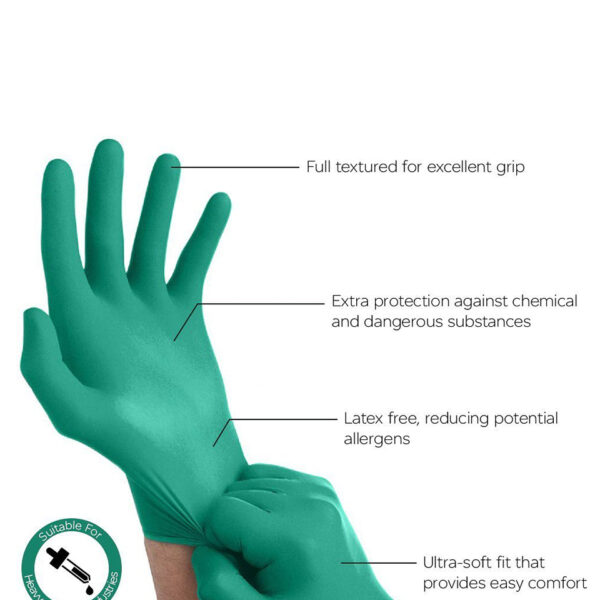In today’s rapidly evolving healthcare landscape, ensuring that medical professionals are appropriately credentialed is paramount for both patient safety and operational efficiency. Medical credentialing services, often referred to as the “Physicians’ Right Hand,” play a crucial role in this process. These services are essential for validating the qualifications and competence of healthcare providers. This article delves into the significance of healthcare credentialing, the benefits it brings to medical practices, and how it supports physicians in delivering quality care.
Understanding Medical Credentialing Services
Medical credentialing services involve a comprehensive process of verifying the qualifications, experience, and professional history of healthcare providers. This process ensures that physicians and other healthcare professionals meet the required standards set by medical boards, healthcare institutions, and insurance companies. Credentialing includes checking educational backgrounds, board certifications, licensing status, and any history of disciplinary actions or malpractice claims.
Credentialing services are not just about ensuring compliance but are crucial for maintaining high standards in patient care. They help prevent fraud, mitigate risks, and enhance the overall quality of healthcare services.
The Role of Credentialing in Healthcare
Credentialing plays a multifaceted role in healthcare. It ensures that healthcare providers possess the necessary skills and qualifications to perform their duties safely and effectively. Here’s a closer look at how credentialing impacts various aspects of healthcare:
- Patient Safety and Quality of Care: By thoroughly vetting healthcare professionals, credentialing services help ensure that only qualified individuals provide care. This vetting process reduces the likelihood of medical errors and enhances patient safety. It also promotes a higher standard of care by confirming that providers are up-to-date with the latest medical practices and knowledge.
- Regulatory Compliance: Healthcare organizations must comply with numerous regulations and standards. Credentialing services ensure that providers meet these requirements, helping organizations avoid legal issues and maintain accreditation. This compliance is critical for sustaining the operational integrity of healthcare facilities.
- Insurance and Reimbursement: Credentialing is also vital for insurance purposes. Healthcare providers must be credentialed with insurance companies to receive reimbursement for their services. This process involves verifying that providers meet the insurers’ standards and that their services are covered under specific plans. Proper credentialing facilitates smooth billing and reimbursement processes, reducing administrative burdens.
- Risk Management: Credentialing services contribute to risk management by identifying potential issues before they become problems. For instance, a thorough credentialing process can uncover past malpractice claims or disciplinary actions that might indicate underlying concerns. Addressing these issues proactively helps mitigate risks associated with provider performance.
The “Physicians’ Right Hand”: How Credentialing Services Support Medical Professionals
Credentialing services act as the “Physicians’ Right Hand” by providing invaluable support to healthcare professionals. Here’s how:
- Streamlined Processes: Navigating the complex world of medical credentialing can be time-consuming and cumbersome for physicians. Credentialing services streamline this process, handling the administrative tasks involved. This allows physicians to focus more on patient care rather than getting bogged down by paperwork.
- Access to Opportunities: For physicians seeking to join new practices or institutions, credentialing services facilitate the process of becoming affiliated with various organizations. This can open doors to new opportunities and enhance career growth. Additionally, being credentialed with multiple insurers can expand a physician’s patient base.
- Ongoing Support and Monitoring: Credentialing is not a one-time event but an ongoing process. Credentialing services provide continuous support by monitoring providers’ credentials, renewing certifications, and ensuring compliance with evolving regulations. This ongoing support helps physicians stay current and maintain their professional standing.
- Professional Development: Credentialing services often assist physicians in identifying areas for professional development and growth. They can provide guidance on obtaining additional certifications or pursuing specialized training, helping physicians advance their careers and improve their skills.
The Future of Healthcare Credentialing
As the healthcare industry continues to advance, the future of medical credentialing is likely to see significant changes. Technology will play a pivotal role in this evolution, with advancements such as artificial intelligence and blockchain potentially transforming the credentialing process. These technologies could enhance efficiency, accuracy, and security in credentialing practices.
Additionally, there may be an increased focus on streamlining credentialing processes across different states and regions. Efforts to standardize credentialing requirements and procedures could reduce administrative burdens and facilitate easier transitions for healthcare professionals moving between different locations.
Conclusion
Medical credentialing services are indispensable in the modern healthcare landscape, serving as the “Physicians’ Right Hand” by ensuring that healthcare providers meet the highest standards of qualification and competence. By playing a critical role in patient safety, regulatory compliance, insurance processes, and risk management, credentialing services contribute significantly to the overall quality of healthcare. As the industry evolves, these services will continue to adapt, leveraging technology and innovation to enhance their effectiveness and support the growing needs of healthcare professionals. For physicians, partnering with credentialing services means having a reliable ally in navigating the complexities of healthcare credentialing and focusing on what matters most—providing excellent patient care.












